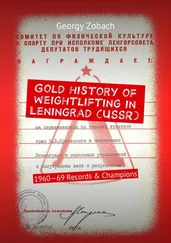Fanny Kemble - Records of a Girlhood
Здесь есть возможность читать онлайн «Fanny Kemble - Records of a Girlhood» — ознакомительный отрывок электронной книги совершенно бесплатно, а после прочтения отрывка купить полную версию. В некоторых случаях можно слушать аудио, скачать через торрент в формате fb2 и присутствует краткое содержание. Жанр: foreign_prose, foreign_antique, на английском языке. Описание произведения, (предисловие) а так же отзывы посетителей доступны на портале библиотеки ЛибКат.
- Название:Records of a Girlhood
- Автор:
- Жанр:
- Год:неизвестен
- ISBN:нет данных
- Рейтинг книги:4 / 5. Голосов: 1
-
Избранное:Добавить в избранное
- Отзывы:
-
Ваша оценка:
- 80
- 1
- 2
- 3
- 4
- 5
Records of a Girlhood: краткое содержание, описание и аннотация
Предлагаем к чтению аннотацию, описание, краткое содержание или предисловие (зависит от того, что написал сам автор книги «Records of a Girlhood»). Если вы не нашли необходимую информацию о книге — напишите в комментариях, мы постараемся отыскать её.
Records of a Girlhood — читать онлайн ознакомительный отрывок
Ниже представлен текст книги, разбитый по страницам. Система сохранения места последней прочитанной страницы, позволяет с удобством читать онлайн бесплатно книгу «Records of a Girlhood», без необходимости каждый раз заново искать на чём Вы остановились. Поставьте закладку, и сможете в любой момент перейти на страницу, на которой закончили чтение.
Интервал:
Закладка:
Mrs. Malkin was a more uncommon person than her husband; the strength of her character and sweetness of her disposition were alike admirable, and the bright vivacity of her countenance and singular grace and dignity of her person must be a pleasant memory in the minds of all who, like myself, knew her while she was yet in the middle bloom of life.
Dr. and Mrs. Malkin's sons were my brother's school and college mates. They were all men of ability, and good scholars, as became their father's sons. Sir Benjamin, the eldest, achieved eminence as a lawyer, and became an Indian judge; and the others would undoubtedly have risen to distinction but for the early death that carried off Frederick and Charles, and the hesitation of speech which closed almost all public careers to their brother Arthur.
He was a prominent and able contributor to the "Library of Useful Knowledge," and furnished a great part of the first of a whole generation of delightful publications, Murray's "Hand-Book" for Switzerland.
One of the earliest of Alpine explorers, Arthur Malkin mounted to those icy battlements which have since been scaled by a whole army of besiegers, and planted the banner of English courage and enterprise on "peaks, passes, and glaciers" which, when he first climbed the shining summits of the Alps, were all but terra incognita to his countrymen.
There is nothing more familiar to the traveling and reading British public nowadays than Alpine adventures and their records; but when my friend first conquered the passes between Evolena and Zermatt (still one of the least overrun mountain regions of Switzerland), their sublime solitudes were awful with the mystery of unexplored loneliness. Now professors climb up them, and artists slide down them, and they are photographed with "members" straddling over their dire crevasses, or cutting capers on their scornful summits, or turning somersaults down their infinite precipices. The air of the high Alps was inhaled by few Englishmen before Arthur Malkin; one can not help thinking that now, even on the top of the Matterhorn and Monte Rosa, it must have lost some of its freshness.
I have said that all Dr. Malkin's sons were men of more than average ability; but one, who never lived to be a man, "died a most rare boy" of about six years, fully justifying by his extraordinary precocity and singular endowments the tribute which his bereaved father paid his memory in a modest and touching record of his brief and remarkable existence.
My Parisian education appeared, at this time, to have failed signally in the one especial result that might have been expected from it: all my French dancing lessons had not given me a good deportment, nor taught me to hold myself upright. I stooped, slouched, and poked, stood with one hip up and one shoulder down, and exhibited an altogether disgracefully ungraceful carriage, which greatly afflicted my parents. In order that I might "bear my body more seemly," various were the methods resorted to; among others, a hideous engine of torture of the backboard species, made of steel covered with red morocco, which consisted of a flat piece placed on my back, and strapped down to my waist with a belt and secured at the top by two epaulets strapped over my shoulders. From the middle of this there rose a steel rod or spine, with a steel collar which encircled my throat and fastened behind. This, it was hoped, would eventually put my shoulders down and my head up, and in the meantime I had the appearance of a young woman walking about in a portable pillory. The ease and grace which this horrible machine was expected to impart to my figure and movements were, however, hardly perceptible after considerable endurance of torture on my part, and to my ineffable joy it was taken off (my harness, as I used to call it; and no knight of old ever threw off his iron shell with greater satisfaction), and I was placed under the tuition of a sergeant of the Royal Foot Guards, who undertook to make young ladies carry themselves and walk well, and not exactly like grenadiers either. This warrior having duly put me through a number of elementary exercises, such as we see the awkward squads on parade grounds daily drilled in, took leave of me with the verdict, that I "was fit to march before the Duke of York," then commander of the forces; and, thanks to his instructions, I remained endowed with a flat back, well-placed shoulders, an erect head, upright carriage, and resolute step.
I think my education had come nearly to a standstill at this period, for, with the exception of these physical exercises, and certain hours of piano-forte practicing and singing lessons, I was left very much to the irregular and unsystematic reading which I selected for myself. I had a good contralto voice, which my mother was very desirous of cultivating, but I think my progress was really retarded by the excessive impatience with which her excellent ear endured my unsuccessful musical attempts. I used to practice in her sitting-room, and I think I sang out of tune and played false chords oftener, from sheer apprehension of her agonized exclamations, than I should have done under the supervision of a less sensitively organized person. I remember my sister's voice and musical acquirements first becoming remarkable at this time, and giving promise of her future artistic excellence. I recollect a ballad from the Mexican opera by Bishop, called Cortex, "Oh, there's a Mountain Palm," which she sang with a clear, high, sweet, true little voice and touching expression, full of pathos, in which I used to take great delight.
The nervous terror which I experienced when singing or playing before my mother was carried to a climax when I was occasionally called upon to accompany the vocal performances of our friendly acquaintance, James Smith (one of the authors of the "Rejected Addresses"). He was famous for his humorous songs and his own capital rendering of them, but the anguish I endured in accompanying him made those comical performances of his absolutely tragical to me; the more so that he had a lion-like cast of countenance, with square jaws and rather staring eyes. But perhaps he appeared so stern-visaged only to me; while he sang everybody laughed, but I perspired coldly and felt ready to cry, and so have but a lugubrious impression of some of the most amusing productions of that description, heard to the very best advantage (if I could have listened to them at all) as executed by their author.
Among our most intimate friends at this time were my cousin Horace Twiss and his wife. I have been reminded of him in speaking of James Smith, because he had a good deal of the same kind of humor, not unmixed with a vein of sentiment, and I remember his songs, which he sang with great spirit and expression, with the more pleasure that he never required me to accompany them. One New-Year's Eve that he spent with us, just before going away he sang charmingly some lines he had composed in the course of the evening, the graceful turn of which, as well as the feeling with which he sang them, were worthy of Moore. I remember only the burden:
"Oh, come! one genial hour improve,
And fill one measure duly;
A health to those we truly love,
And those who love us truly!"
And this stanza:
"To-day has waved its parting wings,
To join the days before it;
And as for what the morning brings,
The morning's mist hangs o'er it."
It was delightful to hear him and my mother talk together, and their disputes, though frequent, seemed generally extremely amicable, and as diverting to themselves as to us. On one occasion he ended their discussion (as to whether some lady of their acquaintance had or had not gone somewhere) by a vehement declaration which passed into a proverb in our house: "Yes, yes, she did; for a woman will go anywhere, at any time, with anybody, to see any thing—especially in a gig." Those were days in which a gig was a vehicle the existence of which was not only recognized in civilized society, but supposed to confer a diploma of "gentility" upon its possessor.
Читать дальшеИнтервал:
Закладка:
Похожие книги на «Records of a Girlhood»
Представляем Вашему вниманию похожие книги на «Records of a Girlhood» списком для выбора. Мы отобрали схожую по названию и смыслу литературу в надежде предоставить читателям больше вариантов отыскать новые, интересные, ещё непрочитанные произведения.
Обсуждение, отзывы о книге «Records of a Girlhood» и просто собственные мнения читателей. Оставьте ваши комментарии, напишите, что Вы думаете о произведении, его смысле или главных героях. Укажите что конкретно понравилось, а что нет, и почему Вы так считаете.












